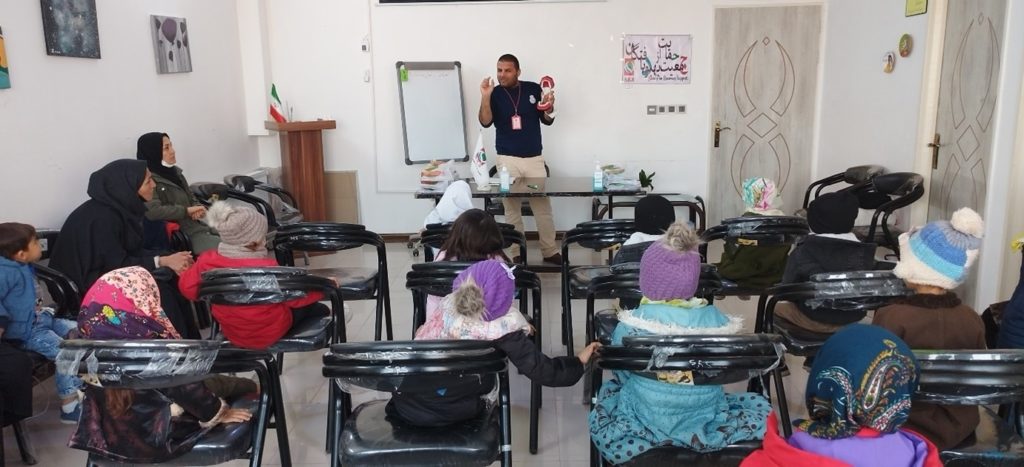As the largest community of refugees in Iran, Afghan migrants have been facing serious issues in terms of access to healthcare and psychosocial support, available mainly for those with legal status, followed by a contribution to an insurance system. The community needs reported/identified are vast, with a large spectrum of essential services uncovered, that require to be addressed with a holistic approach.
In July 2013, the ICRC signed a tripartite agreement for an eight-month pilot project with the Iranian Red Crescent Society (IRCS) and an Iranian NGO, Society for Recovery Support (SRS) to provide basic health services to vulnerable Afghan living in the outskirt of Mashhad, Khorasan Razavi province, the main entry and settlement area of Afghan refugees in Iran. In this period, the necessary assessments were done to identify major needs in different sections and some services on prevention, education, medical and social work services were provided to some extent to the target population.
In 2015, priority was given to primary health care services, developing referrals to secondary health services, promoting hygiene and health education for the target population, as well as harm reduction services as the major objectives of the project.
Since 2020, the quality of care for vulnerable migrants with diabetes and hypertension was improved significantly. Key elements were incorporated in the standardization of accepted care practices through electronic templates, education/awareness, and follow-ups of patients. Furthermore, a family-based approach was implemented to start offering a more holistic package of services to the affected population. At the end of 2021, ICRC handed over the running of the women’s shelter to Relief International (RI).
The program, which run continuously for almost 10 years, includes:
- Basic preventive and primary health care for patients with non-communicable diseases (diabetes, hypertension, and asthma) and referral to specialized services for those as needed,
- Mental health and psychosocial support (MHPSS) with referrals to psychiatric care as needed,
- Physical rehabilitation,
- Harm reduction for drug users,
- High-risk pregnancies,
- Community education on health issues for prevention purposes,
- Community support and social work activities.

Dental hygiene workshop for children and their mothers, Mashhad, 2022

Group sessions of women on community base support, Mashhad, 2019

Primary health services for Afghan Migrants, Mashhad, 2019

